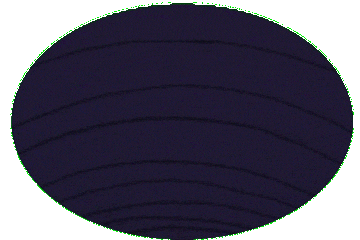In an interview, Paul McCartney described his visit to Los Angeles, California, to see John Lennon during the singer's "Lost Weekend" in 1974. "So I went out there and he was doing Pussy Cats with Nilsson and Keith Moon and Jesse Ed Davis, to name just three total nutters. Three beautiful total alcohol nutters plus John, forget it! Even the location is perfect. We went 'round to a session and sat there for a bit. It was a little bit strange, John and I, seeing each other at that time. But then we dropped by their house the next day for a cup of tea or something. I remember Harry Nilsson offering me some angel dust. I said 'What is it?' He said, 'It's elephant tranquillizer.' I said, 'Is it fun?' He thought about it for about half a minute. 'No,' he said. I said, 'Well, you know what, I won't have any.' He seemed to understand. But that's how it was there."[1]
Harry Nilsson visited the Beatles in London while they were recording their "White Album." One evening, Paul McCartney visited Harry and his wife, Diane, in their hotel room. Paul had brought along a guitar and treated the couple to an acoustic sample of the songs the group was recording for the album.[2]
Sir James Paul McCartney (born 18 June 1942) is an English singer, songwriter and musician who gained worldwide fame with the Beatles, for whom he played bass guitar and shared primary songwriting and lead vocal duties with John Lennon. One of the most successful composers and performers of all time, McCartney is known for his melodic approach to bass-playing, versatile and wide tenor vocal range, and musical eclecticism, exploring genres ranging from pre–rock and roll pop to classical, ballads, and electronica. His songwriting partnership with Lennon is the most successful in modern music history.Born in Liverpool, McCartney taught himself piano, guitar, and songwriting as a teenager, having been influenced by his father, a jazz player, and Rock And Roll performers such as Little Richard and Buddy Holly. He began his career when he joined Lennon's skiffle group, the Quarrymen, in 1957, which eventually evolved into the Beatles in 1960. Sometimes called "the cute Beatle", McCartney later immersed himself in the London avant-garde scene and played a key role in incorporating experimental aesthetics into the Beatles' studio productions. Starting with the 1967 album Sgt. Pepper's Lonely Hearts Club Band, he gradually became the band's de facto leader, providing creative impetus for most of their music and film projects. Many of his Beatles songs, including "And I Love Her", "Yesterday", "Eleanor Rigby", and "Blackbird", rank among the most covered songs in history. Although primarily a bassist with the Beatles, he played a number of other instruments, including keyboards, guitars, and drums, on various songs. After the Beatles disbanded, he debuted as a solo artist with the 1970 album McCartney and went on to form the band Wings with his first wife, Linda, and Denny Laine. Under McCartney's leadership, Wings became one of the most successful bands of the 1970s. He wrote or co-wrote their US or UK number-one hits, such as "My Love", "Band on the Run", "Listen to What the Man Said", "Silly Love Songs", and "Mull of Kintyre". He resumed his solo career in 1980 and has been touring as a solo artist since 1989. Apart from Wings, his UK or US number-one hits include "Uncle Albert/Admiral Halsey" (with Linda), "Coming Up", "Pipes of Peace", "Ebony and Ivory" (with Stevie Wonder), and "Say Say Say" (with Michael Jackson). Beyond music, he has been involved in projects to promote international charities related to animal rights, seal hunting, land mines, vegetarianism, poverty, and music education. McCartney has written or co-written a record 32 songs that have topped the Billboard Hot 100 and, as of 2009, he had sales of 25.5 million RIAA-certified units in the US. His honours include two inductions into the Rock And Roll Hall of Fame (as a member of the Beatles in 1988 and as a solo artist in 1999), an Academy Award, a Primetime Emmy Award, 18 Grammy Awards, an appointment as a Member of the Order of the British Empire in 1965, and a knighthood in 1997 for services to music. As of 2020, he is one of the wealthiest musicians in the world, with an estimated fortune of £800 million.
This article uses material from the Wikipedia article "Paul McCartney", which is released under the Creative Commons Attribution-Share-Alike License 3.0.
- [1] Musician, Chris Salewicz "Tug of War - Paul McCartney wants to lay his demons to rest" 1986-10:
- [2] Diane Nilsson at Harryfest 1999


![Paul McCartney - Band On The Run [2 bonus tracks] - Paul McCartney CD 1EVG The Paul McCartney - Band On The Run [2 bonus tracks] - Paul McCartney CD 1EVG The](https://i.ebayimg.com/thumbs/images/g/ZO4AAOSwAlVfCAol/s-l225.jpg)









![Paul McCartney : Mccartney [us Import] CD (1999) Paul McCartney : Mccartney [us Import] CD (1999)](https://i.ebayimg.com/thumbs/images/g/MY8AAMXQjq5Q9cTB/s-l225.jpg)